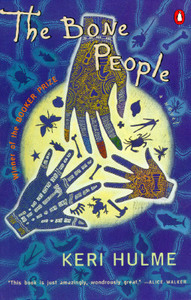You need to sign in or sign up before continuing.
Take a photo of a barcode or cover
I really enjoyed spending time in the NZ setting with these characters and the ways they clashed and grew together. The book sets up several mysteries at the start that are fun to unravel and come back to at the end, although maybe some moral unease on my end at the enjoyment in unraveling one of those mysteries being '
The book is very long though and in the second half I was definitely flagging in places where it felt morr indulgent or repetitive. Its a little deus ex machina at the end as well, i wasn't totally convinced things could be fixed that easily, realistically. Although arguably it is about the hope of things being better, this time.
Graphic: Domestic abuse, Physical abuse, Violence, Alcohol
Moderate: Alcoholism, Child abuse, Grief, Injury/Injury detail
Minor: Addiction, Drug abuse, Drug use, Homophobia, Pedophilia, Racial slurs, Sexual violence, Suicidal thoughts, Excrement, Cannibalism, Medical trauma, Death of parent, Acephobia/Arophobia, Colonisation
This was not an easy book. It's not a lighthearted book. I have no idea how I feel about it because there was so much spoken in metaphors that I didn't understand, and the things I did understand tore my heart to pieces.
I don't know what I think so there's no rating. All I know is I've read it.
I found this book very intriguing. I can't help but think that this book is some how autobiographical on the part of the author. One character in particular - Kerewin Holmes - doesn't seem terribly far removed from our author, Keri Hulme. I cannot help but wonder if Keri can relate to other two characters and their experiences as well and bearing in mind the subject matter, that really does give me pause for thought. Many decry this book for its subject matter of child abuse and violence... but I suspect that this is more autobiographical than many give credit.
Bearing in that in mind, this is a beautifully crafted story. It's main themes, I would say, are family and forgiveness. That might be out of place for some in today's world but in other ways Hulme was well ahead of her time with her asexual main character for one
I know many can't handle the veer from reality to the mystical at the end but it seems to me that Hulme was also touching on something personal here. Something about forgiveness. And if so the ending might not be everyone... but also makes total sense
Personally I didn't always appreciate the poetic writing but I understand this is Hulme's voice. And as such, I respect it.
The more I reflect, the more I think this book was well deserving of the Booker
Graphic: Alcoholism, Child abuse, Physical abuse, Violence, Abandonment, Alcohol, Injury/Injury detail
Moderate: Cancer, Medical content, Grief, Suicide attempt
Minor: Animal death, Pedophilia, Vomit
Review:9.13.13
What to say about this book...
I struggled to get through it. There were some beautiful, musical sections. The mythology was strong but totally foreign. The writing style was just.... painful at times and beautiful at others.
In the Guardian's Booker Club review (http://www.theguardian.com/books/booksblog/2009/nov/19/booker-club-bone-people), the reviewer sums it up nicely: "there follows a moving, intimate insight into the lives of these three struggling people. There are passages of great warmth and beauty. There are scenes of fine drunken comedy. There are also moments of brutal violence, made all the more shocking by the clear love Joe shows for his victim Simon – and the reciprocal affection Simon has for Joe, in spite (perhaps even partly because) of everything..."
Once I got in to the pacing of this book, and past its stream of thought style, i really enjoyed it. My favorite section, where the rhythm really felt right was when they were on holiday at the beach. Once they get back and spend the evening at the bar, and everything hits a frenzy of violence, i was lost again. Or more accurately, I was tired. I didn't see any good coming of anyone's life, and they mythology that Hulme was trying to build remained too flimsy for me to stay invested.
I'm glad i picked it up, and for Hulme's dedication to her unique style alone, I appreciate this as a Booker winner. Recommended for: mythology readers, New Zealand/Maori life, alcoholism, strange tone.



